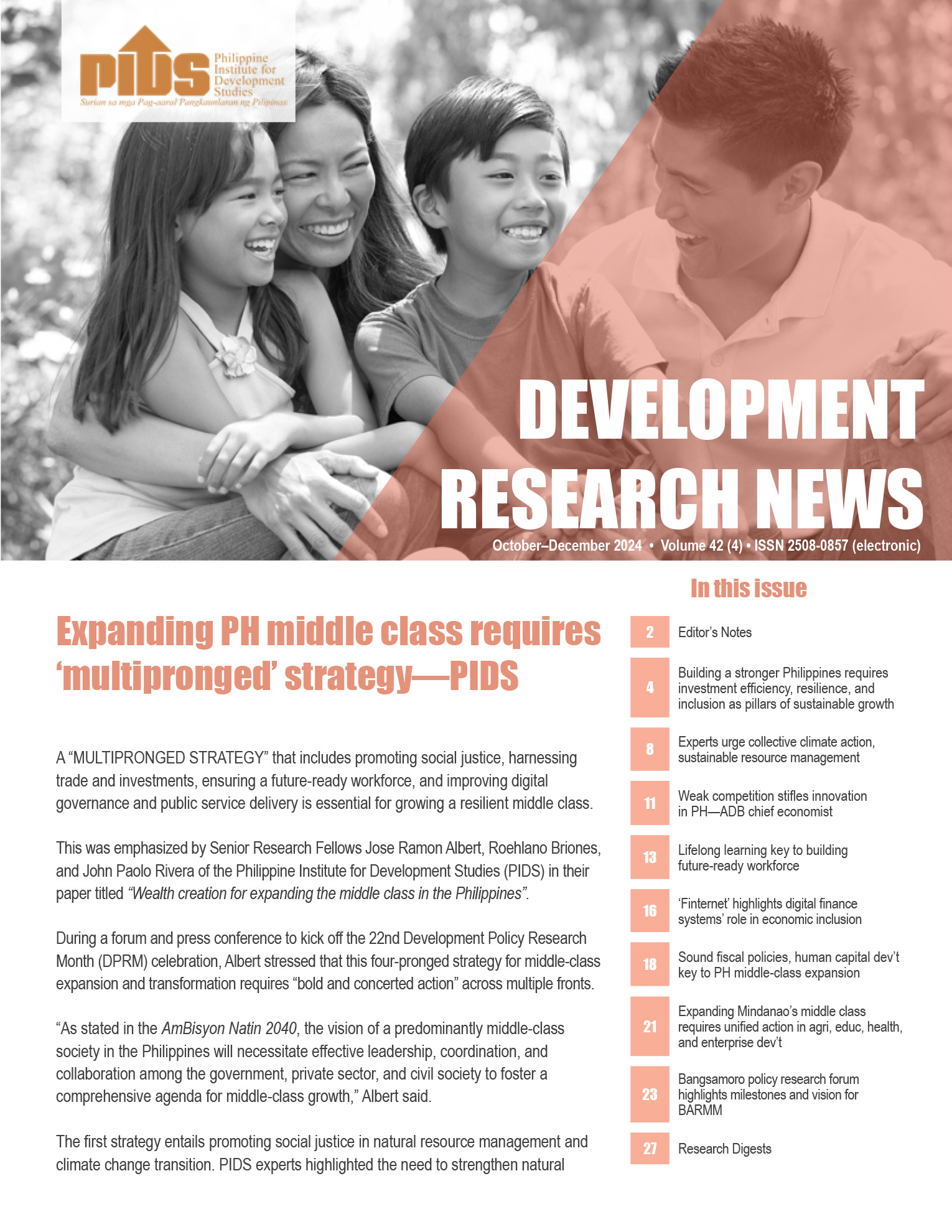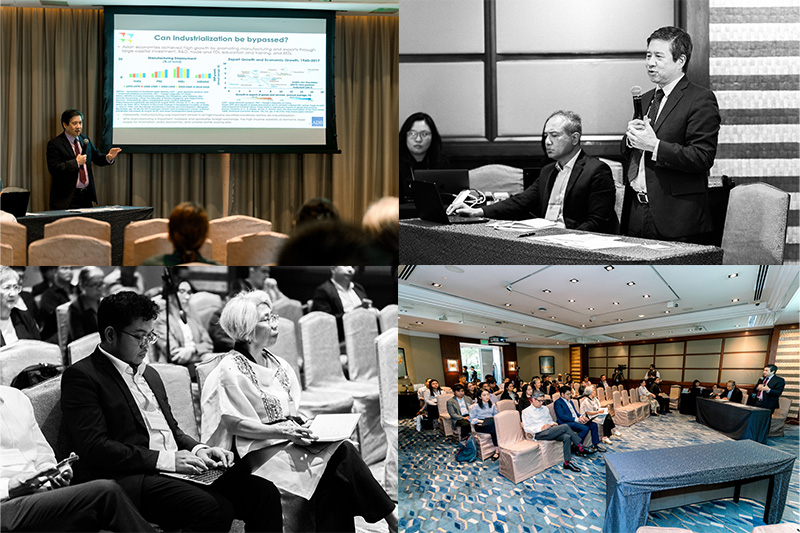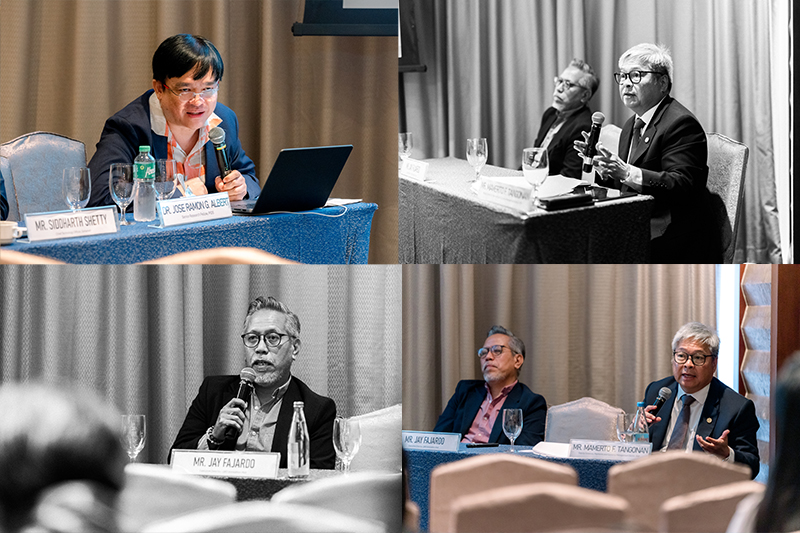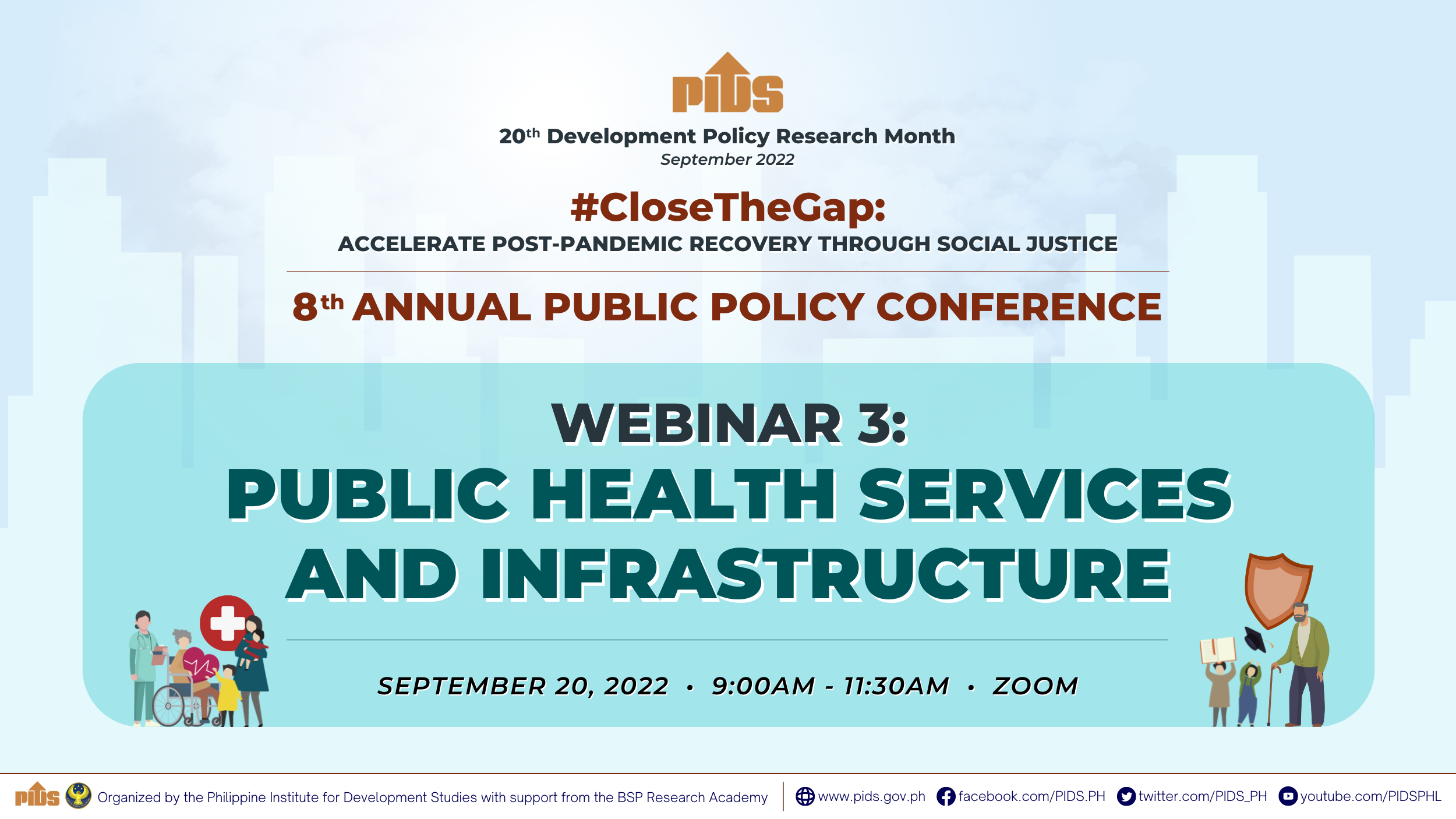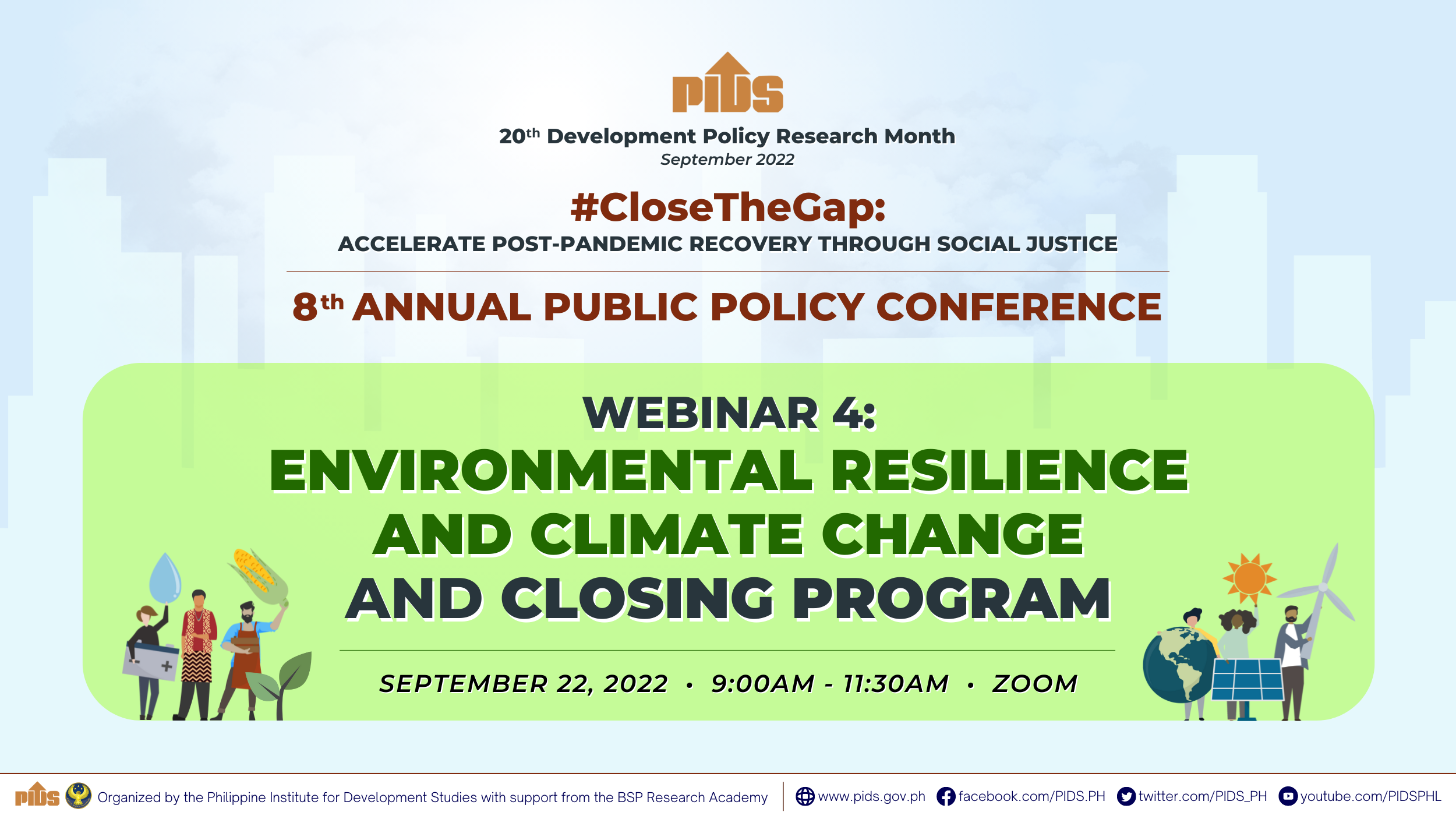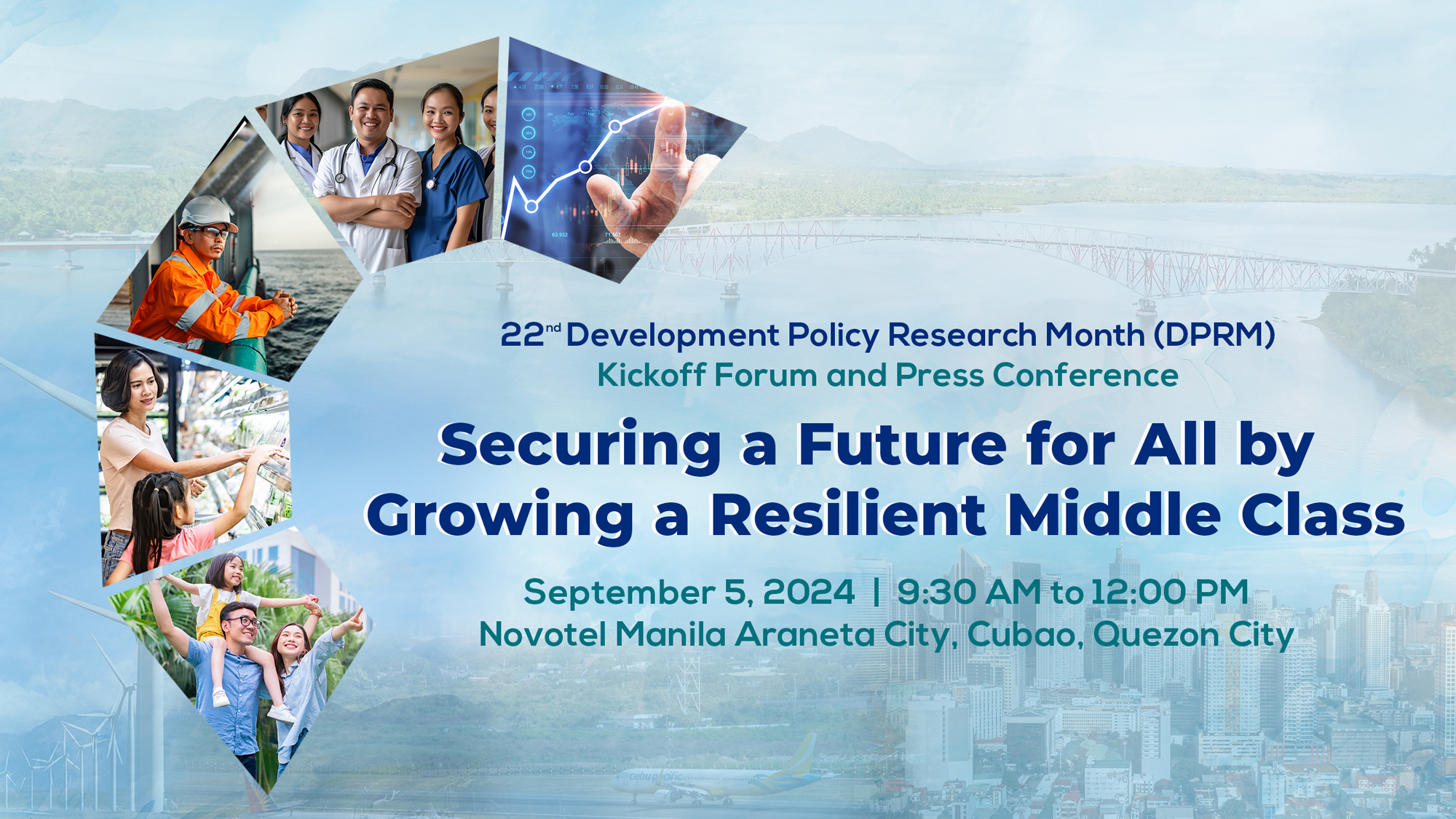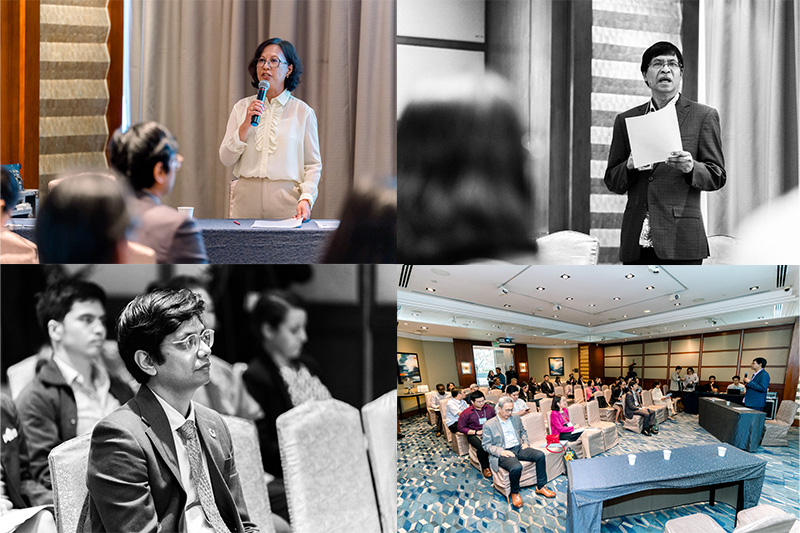
Optimizing governance reforms and climate financing is essential for achieving economic, environmental, and social equity in natural resource management and climate action. This was highlighted by experts in a breakout session during the 10th Annual Public Policy Conference (APPC).
Titled “Natural Resource Use, Climate Transition, and Social Justice”, the session focused on the current state of the planet, the green transition that aims to address this global crisis, and the Philippines’ unique position in the climate effort.
Dr. Selva Ramachandran, Resident Representative United Nations Development Programme (UNDP), opened the session with his presentation titled, “The State of Climate Change and Reflections Moving Forward”. He shared alarming global statistics: 10 million hectares of forest are lost annually, 35% of wetlands have disappeared in 50 years, and over half of the world’s coral reefs have died in the last 30 years. He emphasized that the effects of climate change, like rising temperatures and environmental degradation, directly contribute to food and water insecurity and the displacement of communities.
Quoting the UN Secretary-General, Ramachandran emphasized that human activities are the root cause of this crisis, which also means they are the ones who can solve it. Despite global challenges, Ramachandran pointed to encouraging trends, particularly the promise of nature-based solutions. These solutions, along with the just transition to a low carbon economy, are crucial to meet the required greenhouse gas reduction targets indicated by the Paris Agreement.
In the Philippines, the idea of a just transition is gaining traction. Climate finance is crucial not only for addressing vulnerabilities but also for accelerating development. Ramachandran emphasized the country’s stake in climate change saying, “We must protect the vulnerable. This is critically important, especially for the Philippines. We are in a race against time in this rapidly changing climate, so adaptation must not be forgotten.”
However, a successful green transition requires not only good governance, but also engagement from constituents. Dr. Rodel Lasco, Executive Director of the Oscar M. Lopez Center shared factors affecting climate engagement as he highlighted the dual perspectives of a scientist and a civil society leader, focusing on both the scientific and societal responses to climate change.
Beyond delivering data, Lasco stressed the importance of touching people’s emotions and making them aware of the risks they face. He presents a framework on how to influence people’s beliefs and actions towards climate change, which requires a combination of factual information and emotional engagement. “It is not just climate change facts and figures, it is more of how people perceive climate. Through this, we are hopefully able to make a difference in the belief system, risk perception, and tugging the emotion, therefore pushing them to action,” Lasco emphasized.
Dr. Mirza Sadaqat Huda, Lead Researcher at ISEAS – Yusof Ishak Institute, reinforced Lasco’s insights with their own findings from their own public perception survey, which included respondents from the Philippines. Huda noted that Filipinos are among the top four national respondents in climate outlook surveys, demonstrating strong perceptions and a keen interest in participating in climate-related activities. He added that a significant majority of respondents expressed concern over whether the government is allocating enough resources to address climate change. Filipinos are particularly worried about tropical storms and floods, with data showing that 72.9% of Filipinos have experienced these impacts firsthand and are more aware of the worsening effects of climate change.
Additionally, Huda shared that the Philippines is among the biggest supporters of cutting fossil fuel subsidies. However, this is matched by an equivalent apprehension if the country has enough energy resources to decarbonize. “The Philippines has more than enough alternate energy resources, particularly geothermal, hydropower, and wind. So that is essentially the job of people like us, think tankers and academics, to get the information out there about the availability of resources in the Philippines,” he said.
As all sectors become involved in climate action, the goal is not only for the country to survive but to thrive. Dr. Marian Delos Angeles, Chairman of the Board of the Resources, Environment, and Economics Center for Studies encouraged the session’s audience to view the natural world as an asset alongside the country’s physical, financial, and social capital. Managing these assets together is the key to achieve the country’s sustainable development goals, and turn the challenges brought by climate change into opportunities for all.
A key focus of her talk was the recently legislated Philippine Ecosystem and Natural Capital Accounting System (PENCAS), designed to provide vital data on natural resource use and its economic implications, enhancing traditional indicators like Gross Domestic Product. Delos Angeles noted that natural capital accounting offers a more comprehensive understanding of the economy's interaction with the environment and stressed the importance of collaboration. “We need to enhance all this scientific information with social science … To transition justly into better paths of using natural resources, we need all this information. We need to work together,” she said.
This breakout session is one of four parallel sessions at the APPC, focusing on strategies for achieving inclusive growth through natural resource management and renewable energy. Other sessions addressed the role of digitalization across various sectors, the importance of investing in education and skills development for a future-ready workforce, and how technology can improve access to information and promote public participation in development.
Watch the recording of the breakout session on ‘Natural Resource Use, Climate Transition, and Social Justice’ at https://bit.ly/10thappcbor1 or access the full APPC session at https://bit.ly/appc2024_. ###



